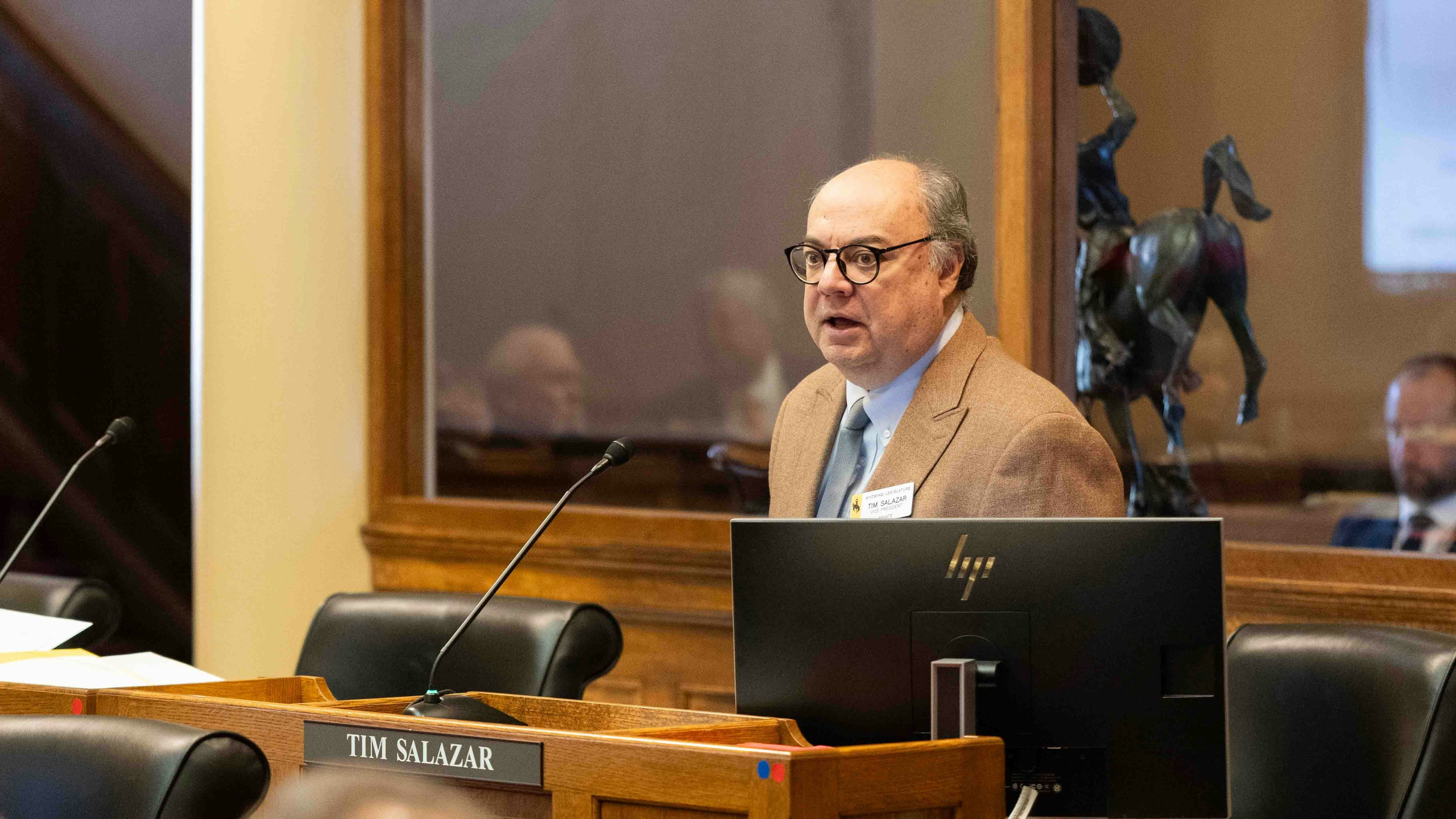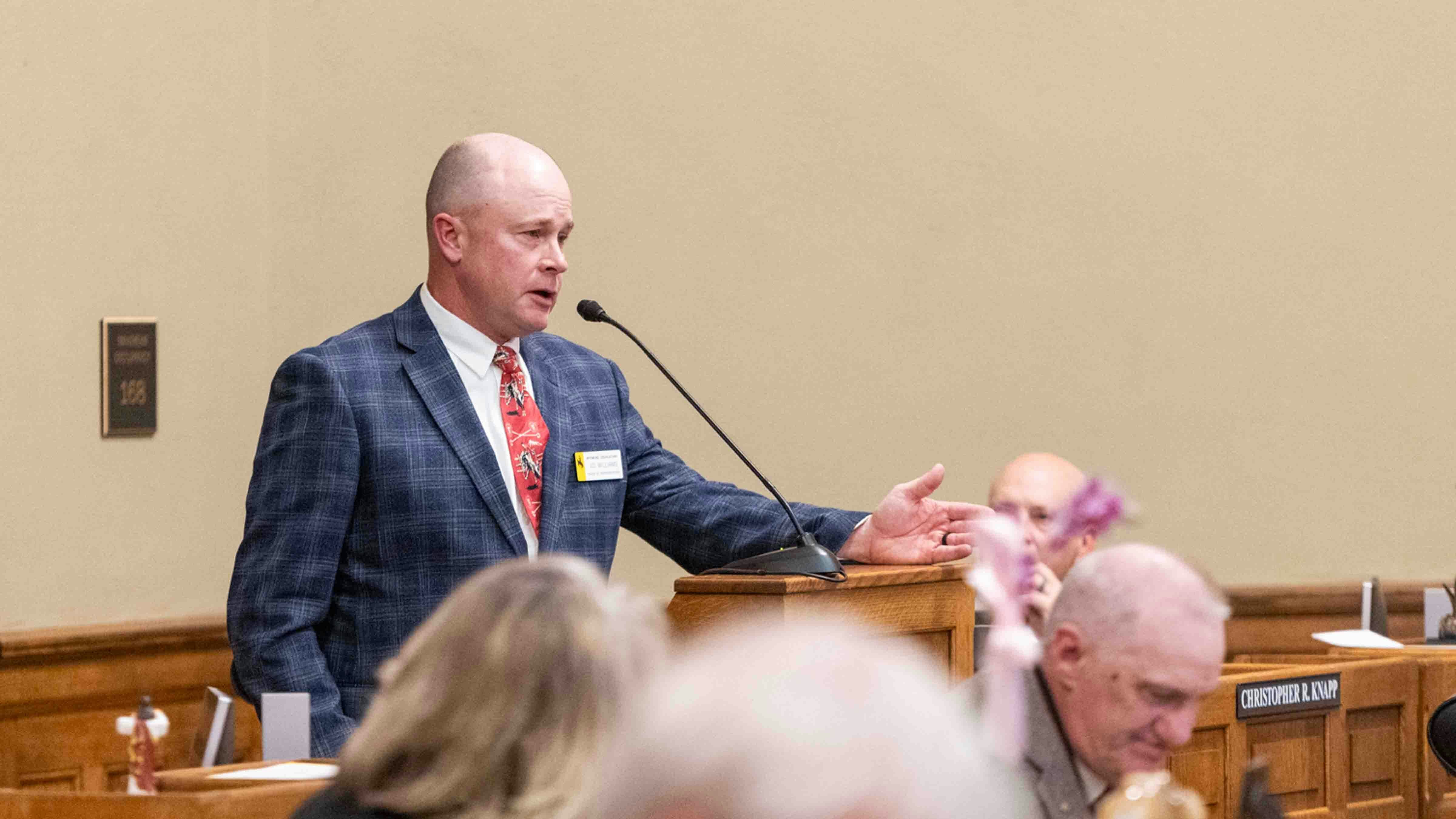CASPER — The correlation between crime and alcohol abuse in The Oil City bubbled up for discussion with the Casper City Council on Tuesday with a question that’s easier asked than answered: what to do about it?
First and foremost, where do you draw the line between abusing alcohol and just living your life the Cowboy Way?
“Keep in mind that Wyoming is Wyoming,” said Councilmember Gena Jensen. “Drinking goes hand-in-hand in a lot of different ways with what we do here and our way life.”
Her comments followed a presentation by Police Chief Keith McPheeters, who brought the council his annual report on law enforcement issues related to city-approved liquor licenses at businesses in Casper. He also shared how alcohol continues to be part of his increasing jail costs.
He said DUI arrests were up 13.9% in 2023, public intoxication up 28.1% and minors in possession of alcohol up significantly.
“Although the number of alcohol related crashes has continued a two-year trend of decline,” McPheeters wrote in a report for the council, “there remains anecdotal evidence that the severity of the alcohol involved crashes increased.”
BAC Levels Up
The average blood alcohol content (BAC) of those his department arrested for alcohol-related driving last year was 0.137%. The BAC threshold for in Wyoming law is 0.08%.
“Put another way, half of all persons arrested for DUI in our community are more than double the legal limit,” he wrote.
In his presentation to the council Tuesday, McPheeters said there were no businesses with liquor licenses drawing the “ire” of his department, but there are worrying trends around establishments that offer alcohol and gambling.
While McPheeters told council his written report may have contained an error when it showed that minors in possession of alcohol incidents jumped 92.4% from 22 in 2022 to 127 in 2023, he said the number remains significantly high. He warned the council that the trend represents the future if it is not dealt with.
“It seems it is something we should take seriously,” said Councilmember Jai-Ayla Sutherland. “It’s concerning if it does have that bellwether flag.”
Councilmember Kyle Gamroth said the city used to participate in a state survey about risky youth behavior but stopped in 2015. He suggested the city consider rejoining the survey.
REDDI ‘Saving Lives’
McPheeters characterized the public’s help to get impaired drivers off the road as “valuable.” The REDDI (Report Every Drunk Driver Immediately) calls from the public helped his officers take “a lot of DUIs” off the streets.
“They have no idea that they may have saved lives,” he said.
In addition to the statistics, McPheeters applauded local establishments for their training to prevent minors from buying alcohol. Just 11 establishments were cited for selling to minors in 2023 during department compliance checks. In 2022, the number was 25.
“They should be congratulated,” McPheeters said. “It’s a huge decrease, which is significant, and zero establishments had more than one failure.”
City Manager Carter Napier told the council the report is part of the renewal process that involves the city’s liquor licenses.
“We try to give you a feel as to the law enforcement activity that has one of these business licenses and give you a feel for what our experience has been over the past year,” he said. “We anticipate that you will be anticipating the renewal question soon on a formal basis and this data may be helpful to you.”
Sanctions For Servers?
In his report, McPheeters suggested the council may want to consider sanctions for those who sell alcohol to a person who is already intoxicated. He said Wyoming law favors the alcohol industry and research would need to be done.
Jensen questioned what the end result should be and pointed to the fact that Wyoming is a state with a foundation built on roughnecks from the oil industry and cowboys, rodeos and fooball events that revolve around beer drinking.
“I don’t think putting regulations on those people is going to help the situation, I see it hurting it more,” she said.
Jensen said the city should focus resources on “helping people get home safer and educating children better on the effects of what alcohol can do.”
McPheeters said the city already is a key sponsor of the Safe Ride program to get those who have imbibed too much home safely through an Uber ride. He said his officers also take part in educational programs when asked at area schools.
He called the increasing problem an economic one for the city and state.
“When you say you don’t want to make these changes you are saying, ‘Chief, it is OK that your incarceration line item continues to grow and grow and grow instead of allocating those resources to our infrastructure needs or other things,’” he said. “The end goal is to improve the quality of life in our community and reduce the cost of living. A little legislation goes a long way to achieving those two goals.”
National DUI Data
At the website alcohol.org, data from the National Highway Traffic Safety Administration, FBI and Fatality Analysis Reporting System shows Wyoming a dark red state — among the worst — for its 7.6 per 100,000 alcohol-impaired driving fatalities. Wyoming was also among the nation’s leading states in DUI arrests per 100,000 people at 561.5, trailing only South Dakota and North Dakota.
City Councilmember Amber Pollock agreed that strengthening the law could help some bartenders and servers who face customers demanding another drink. It would give them another tool to say “no.”
Both McPheeters and City Attorney Eric Nelson said the options for the city strengthening its ordinances are not clear. They would need to dig into state statues and case law. But in the end, the council gave them a thumbs up to consider options.
“The state of Wyoming protects licensees and their employees from civil liability from events arising from the actions of an intoxicated patron,” McPheeters said in his report. “However, a carefully developed ordinance may facilitate the reduction of these reoccurring, alcohol-related crashes occurring in our community, whether that ordinance focuses on criminal sanction, civil sanctions, or both.”
Editor's Note: This story has been corrected to reflect the average blood alcohol content (BAC) of those people arrested by the Casper Police Department for alcohol-related driving last year was 0.137%, not 0.237%.
Dale Killingbeck can be reached at dale@cowboystatedaily.com.





